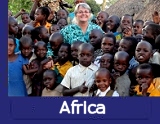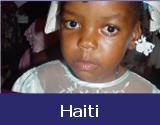 |
Contact usUnited Caribbean TrustIn memory ofCounterpartCBETConservation
Endangered species |
home >> caribbean
>>counterparts>>
dr colin hudson Dr. Colin Hudson February 23 CERN (Press release) GREENWIRE-Colin Hudson, developer of the sugar cane harvester and environmentalist, dies: BRIDGETOWN, Barbados, February 23, CERN - Dr. Colin Hudson, British-born Barbadian environmentalist and innovative scientist, acknowledged internationally as a key developer of the modern sugar cane harvester, died in Barbados early Sunday. According to radio reports, Hudson, 68, died as he was preparing to lead his weekly early-morning hikes around Barbados to educate dozens of Barbadians and visitors on local culture and environment. No further details surrounding his death were immediately available. In 1961, Hudson came to Barbados to work initially on sugar cane agronomy after studying agronomy at Cambridge University. He later immigrated, completing a prize-winning doctorate at the University of the West Indies in 1968 and working with the acclaimed Barbadian agriculturalist and biologist, the late Graham Gooding. Hudson's friend of 35 years, agriculturalist Keith Laurie, told CBC Television Monday that Hudson saw the need for mechanisation in the sugar industry and shifted his focus from agronomy to technology, developing a harvester for sugar cane. Forming the company, Carib Agro-Industries Limited, Hudson invented harvesters for sugar, yam and cassava and obtained 20 patents for his machines which were used around the world. In honour of his acheivement, he was awarded membership of the Barbados Association of Professional Engineers although the inventor was not a certified engineer, Laurie said. Widely known as a tireless and fertile source of ideas, information and inventions, Hudson wrote more than 200 papers during a 43-year career in agronomy, engineering and environmentalism. In 1994, the Barbados Governor General and NGO leader, Dame Nita Barrow, urged him to create an exposition of low-cost sustainable technologies to coincide with the landmark United Nations conference on the sustainable development of small island developing states (SIDS). "[The Village of Hope] was one of his greatest creations", said Laurie who worked with Hudson to develop an eco-farm exhibit, a model organic farm on grounds near the conference site. He said exhibit attracted 2500 school children. "The exhibit was solution-oriented," said United Nations Assistant Secretary-General Miles Stoby, one of the figures behind the 1994 SIDS conference. "[The Village of Hope focussed] on many of the sustainable development challenges islands faced and some of the simple decisions we need to take to heal the planet. The UN family is deeply indebted to Dr. Hudson for his contribution to global sustainable development imperatives." Hudson's dreams of a permanent home for the Village of Hope led to the creation of the Future Centre Trust at his Edgehill Plantation home in central Barbados. "He threw his whole enthusiasm and passion into it," said Laurie, adding that Hudson was concerned with the unsustainability of modern Barbadian lifestyles and urging that development leave a "smaller footprint" on the environment. In 1993, he warned against the pace of development, noting that the 106-thousand acre island had lost more land to irreversible development in the 30 years since Independence than in the 350 years since settlement in the seventeenth century. "The Exhibition of Hope, which we have put together in Barbados, shows that the solutions for a better world are there," said Hudson in 2002, shortly before mounting a similar exhibition in South Africa to coincide with World Summit on Sustainable Development. "The challenge is to strengthen the Web of Hope through which the solutions are made known to the world and applied," he added. Hudson's wish was that a road-show would tour the British Isles and provide the blueprint for similar projects to be repeated around the world. His weekly expeditions, begun as a project of the Barbados National Trust, also led to the creation of Treading Lightly, an organisation dedicated to finding sustainable solutions to development problems and to perpetuate the walking tours. The sustainable development organisation, Counterpart Caribbean, later took over responsibility for the Future Centre Trust. In a statement released Monday, Chairman Dr. Basil Springer, said Counterpart Caribbean was in the process of developing the centre into a "fully fledged educational and recreational tourism attraction for the benefit of children, residents and tourists alike, that will foster holistic sustainable development in the years to come, will ensure that Dr. Hudson's legacy is remembered and valued, especially among the youth of Barbados and the wider Caribbean." Lelei LeLaulu, the head of Counterpart International, who as a UN official helped organise the Barbados SIDS conference, said Dr. Hudson's death was a "difficult loss" that would have an impact far beyond Barbados. "Dr. Hudson represented a bright light in the dark decisions that are being made globally that degrade planet Earth. His passion, energy and genius will be remembered and even more highly valued in the years ahead," said LeLaulu. Laurie said he was constantly inspired and set on a new path of discovery because of the innovator's "active" brain. "He was also very involved in solar energy.... In the last few weeks he was able to build a house [out] of a tree..." Hudson was awarded Barbados's third-highest national honour, the Gold Crown of Merit (GCM), in 1995 for his contribution to the sugar cane agriculture and the environment. He also received the Guinness Award for Scientific Achievement in 1982. "He was a modest person and a totally delightful man," said Laurie of the soft-spoken, mild-mannered innovator. "How we are going to replace him God only knows." Hudson, who was single, leaves to mourn his father and two siblings. (CERN) Copyright 2004 CERN |


 

 |
| Copyright © 2022 www.UnitedCaribbean.com. All rights reserved. Disclaimer Click to Contact us |